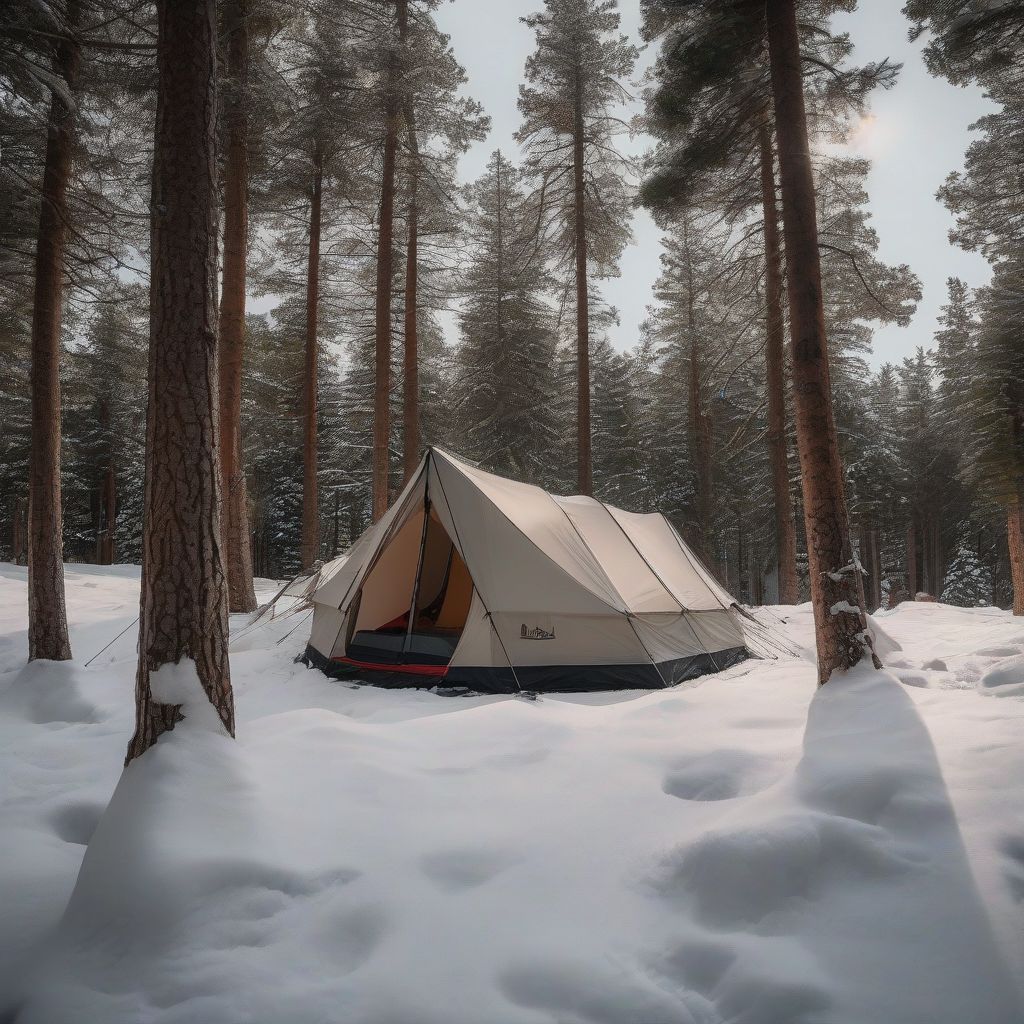Imagine this: a pristine winter wonderland blanketed in snow, the crisp air biting at your cheeks, and a sky bursting with stars. Winter camping offers a unique kind of magic, a chance to reconnect with nature in its most serene form. But venturing into the cold demands preparation and respect for the elements. As a nutritionist and meal prepping expert, I understand the importance of fueling your body right, especially in demanding conditions. Let’s dive into how you can stay warm, safe, and energized on your next winter camping adventure.
Gearing Up for Warmth: Dress for Success in Layers
Think of your clothing as your first line of defense against the cold. The key is to trap heat effectively and stay dry.
Layering: Your Secret Weapon
- Base Layer: Start with moisture-wicking long underwear made of wool or synthetic fabrics. Avoid cotton as it absorbs moisture and can make you colder if it gets wet.
- Insulating Layer: Fleece or wool sweaters, jackets, or vests work great. Down insulation offers excellent warmth-to-weight ratio, but ensure it stays dry.
- Outer Shell: A waterproof and breathable jacket and pants are crucial to protect you from wind, snow, and rain.
Don’t Forget the Extremities!
- Head and Ears: A warm hat that covers your ears is essential, as you lose a significant amount of heat from your head.
- Hands: Mittens are warmer than gloves. Consider liner gloves for added warmth or when you need more dexterity.
- Feet: Opt for insulated and waterproof boots. Wear wool or synthetic socks and pack extra pairs.
Campsite Selection and Setup: Creating Your Winter Haven
Choosing the right campsite and setting it up strategically can significantly impact your warmth and comfort.
Location is Key
- Shelter from the Elements: Look for natural windbreaks like trees or rock formations.
- Sunlight: Set up camp in an area that receives some sunlight during the day to help melt snow and provide passive warmth.
- Avoid Hazards: Steer clear of avalanche-prone slopes, dead trees, and bodies of water with thin ice.
Setting up Camp
- Insulate Your Tent: Use a footprint or tarp underneath your tent for extra insulation and moisture protection. Consider a four-season tent designed for colder temperatures.
- Sleeping System: Invest in a sleeping bag rated for temperatures colder than what you expect. A sleeping pad with a high R-value will provide crucial insulation from the cold ground.
- Snow Walls: If you’re in a snowy area, build a snow wall around your tent to block wind and reflect heat.
 Winter Camping Tent Setup
Winter Camping Tent Setup
Staying Warm from the Inside Out: Food and Hydration
Just like a car needs fuel to run, your body needs adequate calories and hydration to stay warm in cold weather.
Fueling Your Body
- Increase Caloric Intake: Cold weather requires your body to work harder to maintain its core temperature. Pack calorie-dense foods like nuts, seeds, trail mix, cheese, and energy bars.
- Warm Meals and Drinks: Hot meals and beverages not only provide essential nutrients but also warm you from the inside out. Bring a camp stove and easy-to-prepare meals like soups, stews, and instant oatmeal.
- Stay Hydrated: Dehydration can make you feel colder. Drink plenty of water throughout the day. Consider warm drinks like herbal tea or hot chocolate.
Staying Safe: Winter Camping Tips and Precautions
Safety should always be your top priority when venturing into the wilderness, especially during winter.
Be Prepared
- Check the Weather Forecast: Be aware of potential storms, extreme temperature drops, and wind chill warnings. Adjust your plans accordingly.
- Inform Someone of Your Plans: Always let someone know your itinerary, expected return time, and contact information.
- Pack Essential Safety Gear: Carry a first-aid kit, map, compass, extra batteries for headlamps and electronics, and a whistle to signal for help.
Recognizing and Preventing Hypothermia
- Symptoms: Shivering, slurred speech, confusion, and loss of coordination are signs of hypothermia.
- Prevention: Stay dry, layer appropriately, eat calorie-rich foods, and drink plenty of fluids. Seek shelter immediately if you experience any symptoms.
Embracing the Adventure: Enjoying Your Winter Wonderland
Winter camping offers a unique opportunity to witness nature’s beauty and experience tranquility like never before. By following these tips, you can stay warm, safe, and prepared to embrace the magic of the season.
Remember, proper planning and preparation are key to a successful and enjoyable winter camping trip. So, pack your warmest gear, grab your adventurous spirit, and get ready to create unforgettable memories amidst the snowy landscapes.
[amazon bestseller=”winter camping gear”]
